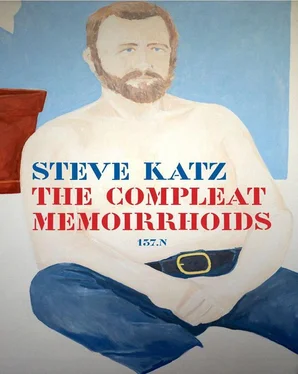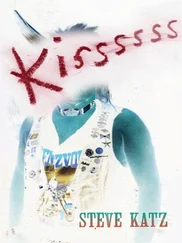I had put new tin on the roof of the tool shed, and some time later I built a second outhouse below the assay house, an A-frame one-holer. Harry Rogan didn’t like the way I built it. He was a quiet old Norwegian sourdough miner coffee brewing lumberjack bean aficionado perfectionist guy who married Jingle’s mother after Forrest’s lungs gave out to silicosis. His strength was legendary in the Minnesota woods, known as the man with the strongest grip in the world. He liked to show it off when he shook your hand. Your fingers would come out of the handshake crushed together, corrugated from the imprint of his clamp. I never heard anyone pronounce the word “potato” with so much love — puh-day-duh. He grew up at the old National Mine, on the other side of Buckskin, famous in the region for having briefly produced the richest ore ever seen in the West. What was once a lively small town there had crumbled into the sagebrush. When you walked around with Harry he told you where every building once stood, and who lived or worked there. Once when we were standing in the brush, where he remembered the old schoolhouse to be, he kneeled and lifted from the dust an old inkwell, and held it as if it was Yorick’s head, caressing it with his gaze, tears in his eyes. He said he recognized it, and it might have been his inkwell at one time. I admired Harry a lot, and his disapproval of my outhouse construction bothered me, but I still argued that the shape was appropriate to the activity within. Almost fifty years later that outhouse is still erect and functional. That’s how at the time I slowly armored my manhood with small accomplishments.
Wild Bill Maquerquiagua, the one-eyed Basque buckaroo, left a couple of old cutting horses in a rocky pasture that Forrest (Jingle’s father) had fenced off. (One skill I did claim was that I knew how to fix fence, which I learned on rugged Catskill farms.) Wild Bill said they were quiet old horses. “I always like to be close on some steers,” he liked to say. “Then if anything blows up in the world I’ll always have something to eat.” I rode one of those horses every day to work at a mercury prospect a man named Clark was developing at the top of Buckskin. Every morning I rose early and climbed the pasture to where the horses were grazing. Hiding the halter I extended a fistful of oats to entice one of the old ponies and bring it down to the house. I tied it up, threw on a saddle blanket, and gave it another measure of oats to calm it down. I went for breakfast myself before saddling the horse and riding up the mountain to work with Clark. The old horse bucked a little every day when I first mounted, threw me a couple of times, just to show it knew that I was a ringer from New York City. Clark was trying to develop the rich vein of cinnabar at the surface. People had known it was there for fifty years. No one had ever found any extension of the vein into the mountain. A prospector is the ultimate gambler, always can cook up some optimism to sell. Clark, however, was mining for stock; that is, he had handsome stock certificates printed up and spent time up in Montana, carrying a flask of mercury, and some super rich hunks of ore, selling the certificates to his wife’s Mormon relatives. Clark was a handsome man, tall, wiry, and capable, though he was somewhat “salivated” because the mercury had got to him. He had lost most of his teeth, and his hair was falling out. Sometimes Jingle and I would go for a picnic up cabin creek or one of the other canyons, with himself, his wife, and his eight kids, and we would stay there into the dark, and he liked to talk about the stars, which were so penetrating and close in the wild Nevada darkness. “The stars jump around,” he would say, his eyes staring off like a visionary’s. “They ain’t always in the same place. I seen them jump across the sky. Every night they move.” Jingle defended his observation at first; after all, his cocksure charisma easily sold chancy mine stock. Both she and Clark were desert people, and had never thought much about navigation. I saw no future in starting an argument.
This was one of the toughest jobs I’ve ever had. The rock was a rich cinnabar red when you first cracked it. I loved looking at that color, but it quickly oxidized to a dull yellow brown. Clark didn’t have the luxury of a jackleg to hold up the jackhammer, so I had to breast it into the hard rock. My body went on rattling long after I shut the hammer off, and it was difficult to eat after a few hours on that machine. The chances Clark took were downright dangerous if not foolhardy. You have to cook the cinnabar to get liquid quicksilver out of the mercury sulfide. He found a used retort through which you could distill the fumes and fill flasks of mercury at the end. This equipment had a big crack in it, and leaked fumes. Anyone who went near this operation, including his eight kids, breathed those fumes. Mercury affects your brain. I’m sure I came away from my months working for Clark a little stupider.
Everything I did added merit badges to my male qualifier sash — one more layer of male armor. As a concession to my position as an artist I cut back on work in the mine so I would have half a day to write. Some men write. I suspect that in this case perhaps I wrote to reduce my chances of killing myself at work. I assigned myself three hours every afternoon for writing. Each day I chose a mythological name (one came to me) — Hermes, Sampson, Wonder Woman, Achilles, Mandrake. I sat in the assay office in the zone of that name and wrote around it for three hours. My rule was to make a complete story in three hours and not change it after I timed out. This was the way a man would write. I called these works “Mythologies,” most of them published in Creamy & Delicious .
I had a little gun. It wasn’t much, a 22 caliber repeating rifle. I never wanted nor thought about a gun before I married Jingle. Her family had respect for firearms, and used them with discretion, killing only what they could eat. I thought we should have one when we took the job as fire lookout and smoke chaser in the Clearwater in Idaho. There I got us an occasional grouse, and one porcupine, the only fresh meat we had while on the lookout. I enjoyed my gun. I swabbed its barrel, and kept the workings clean and oiled. At Buckskin I’d practice shooting cans off fence posts, just as Montgomery Clift did in Red River . John Ireland really admired Montgomery Clift’s gun. In a titillating scene of male bonding they examine and fondle each other’s guns. I never became much of a shot. I sometimes swaggered out through the rabbit brush, hoping to bring home something, a jackrabbit, a sage hen. I stumbled down several gulches, and up to the rimrock again, across saddles and rockslides. Small clouds puffed across blue Nevada sky. A red-tailed hawk circled above me. Ravens perched and waited. After a while, finding nothing to shoot, I got itchy. A man walks around for hours with a gun, and he doesn’t find anything to shoot, that man becomes restless. That’s how I reasoned with a gun in my hands. A man wants to shoot the gun. Just in time I saw a fat chipmunk sitting on this lichened outcrop. In Sergeant York Gary Cooper could hit a wild turkey in the eye. He licked his trigger finger first. Shucks Steve, I told myself, you’re not a good enough shot to hit that fat chipmunk at this distance. I licked my finger and aimed quickly and squeezed the trigger. The chipmunk deflated instantly and flopped off the rock. I couldn’t have hit it. I didn’t hit it. I crossed the shallow draw and found that I’d shot a chipmunk. It made me sick of myself, and confused. I could never tell Jingle or Woody about this. I couldn’t explain this to Forrest Bell or Harry Rogan or Marian Bell. I never told anyone. Steve Katz shot a chipmunk.
Читать дальше












